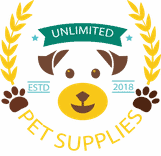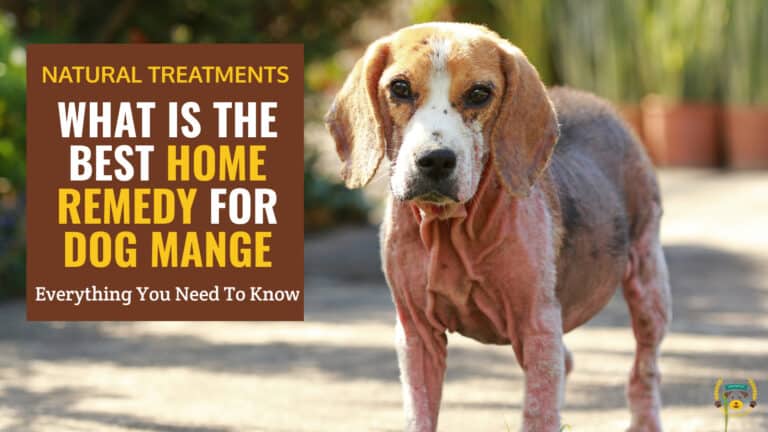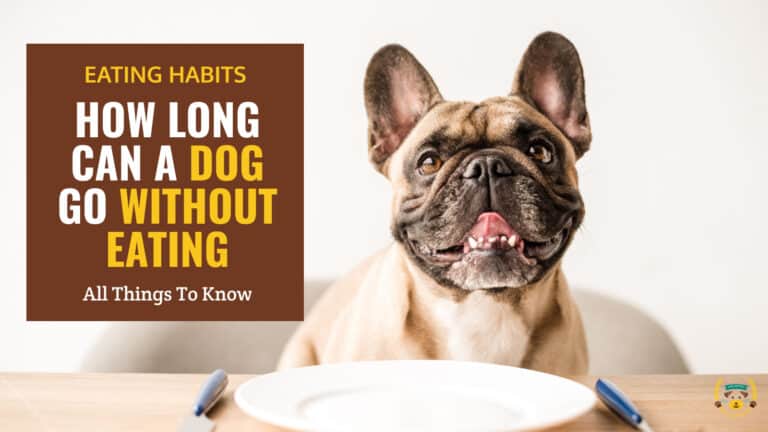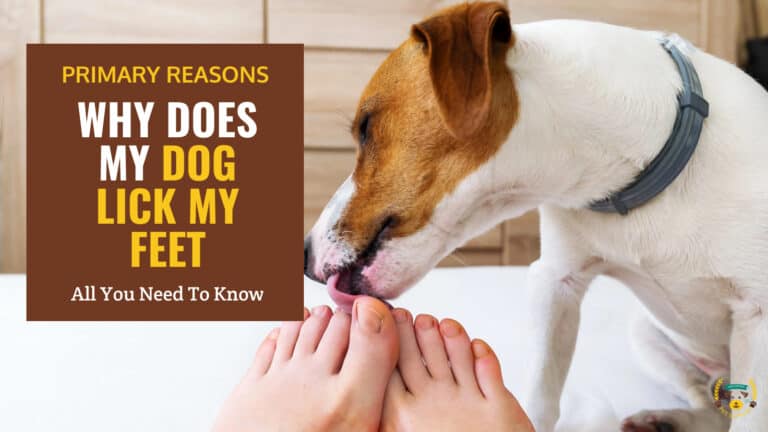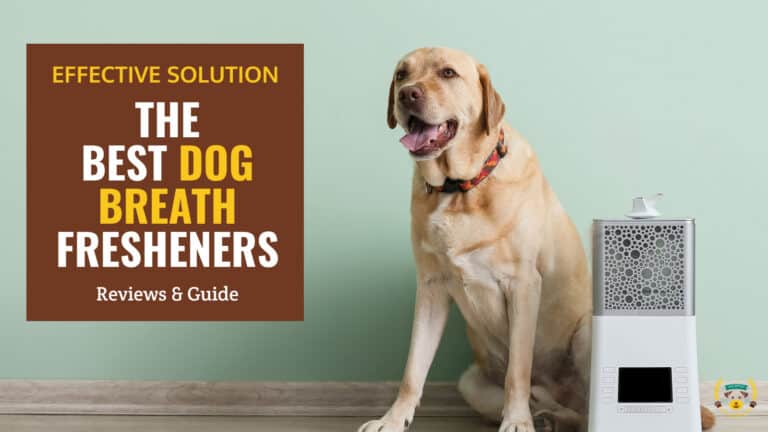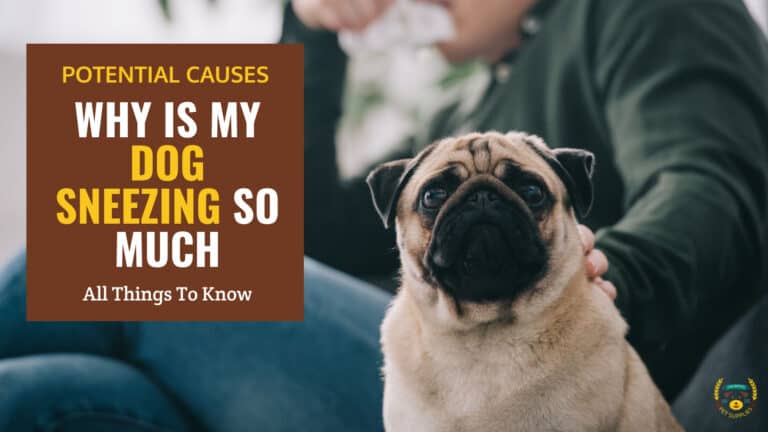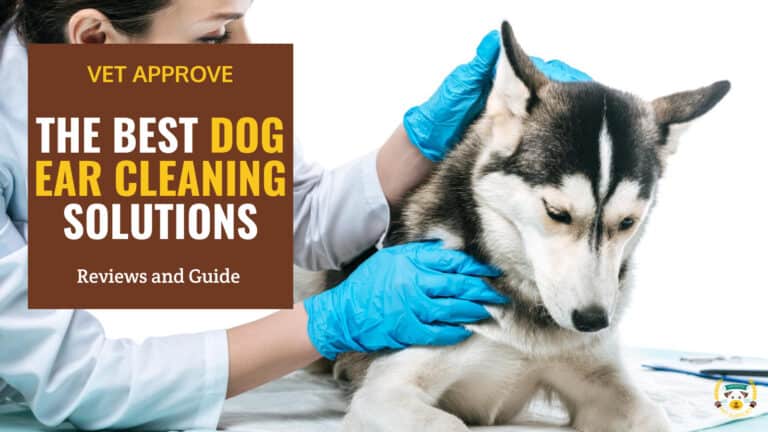How To Stop a Dog From Eating Poop?
Last updated: March 22, 2024
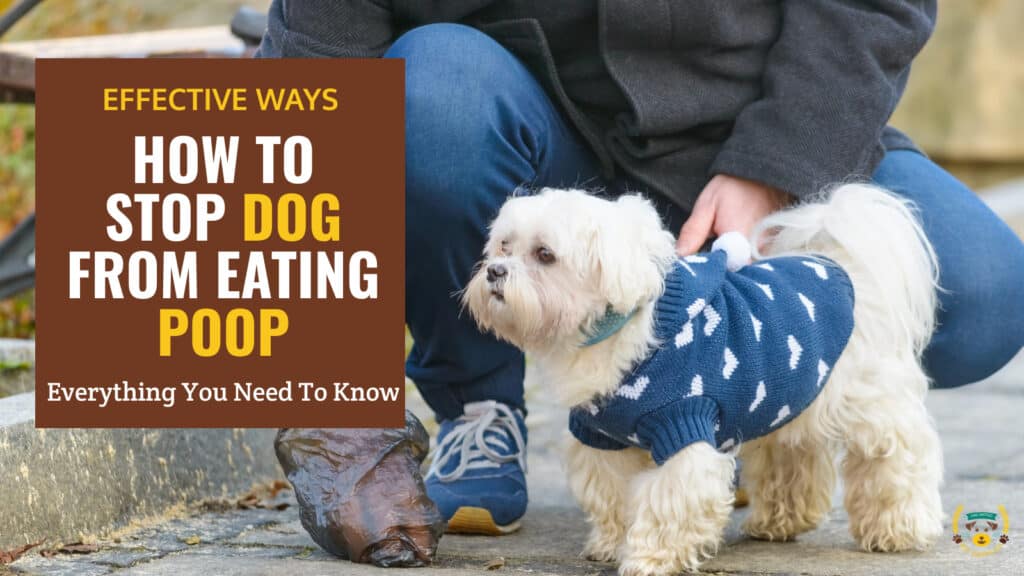
Summary
- Coprophagia is a common term for dogs eating feces, and it can be caused by various factors.
- Owners should observe their dog's behavior to identify patterns and potential triggers.
- Consulting a veterinarian is essential to rule out any medical conditions that may be contributing to coprophagia.
- If the cause is nutritional deficiencies, vets may recommend switching to a high-quality balanced diet and adding necessary supplements.
- Keeping the living space clean and limiting the dog's access to feces are important preventative measures.
Coprophagia, the scientific term for dogs eating their own feces or that of other animals, is a frustrating issue for many pet owners. This behavior raises concerns about your furry friend's health and creates an unpleasant situation for both the dog and its human companions.
Coprophagia is more common than you might think, affecting dogs from all walks of life. It's crucial to explore the various factors that may contribute to this undesirable behavior, such as nutritional deficiencies, medical conditions, behavioral issues, and environmental factors, to develop an efficient approach to help your furry friend kick this unsavory habit.
In this article, we will go through what causes your dog to eat poop and suggest solutions to this unpleasant and unhealthy behavior.
- 1) Identifying the Root Cause of Your Dog's Poop Eating Habit
- 2) Addressing Nutritional Deficiencies
- 3) Treating Underlying Medical Conditions
- 4) Managing Behavioral Issues
- 5) Implementing Environmental Changes
-
6)
Frequently Asked Questions
- 6.1) Why do dogs eat their own poop?
- 6.2) Can eating poop make my dog sick?
- 6.3) How can I tell if my dog's poop-eating habit is due to a medical issue?
- 6.4) Are there any products that can help stop my dog from eating poop?
- 6.5) How long does it take to break the habit of poop-eating in dogs?
- 6.6) Is it normal for puppies to eat their own poop?
- 6.7) Can a change in diet alone stop my dog from eating poop?
- 7) Final Thoughts
Identifying the Root Cause of Your Dog's Poop Eating Habit
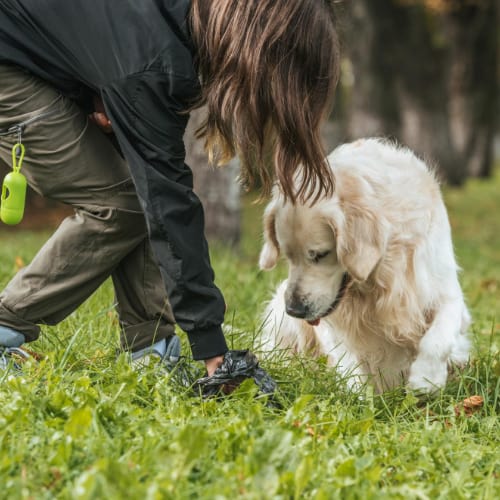
You've caught your furry friend in the act, and now you're determined to get to the bottom of this unsavory behavior. The first step in tackling coprophagia is identifying the underlying cause. By observing your dog's behavior, consulting with your veterinarian and assessing environmental factors, you can uncover the root of the problem and develop an effective plan to help your pup get rid of the habit.
Observing Your Dog's Behavior
Become a detective and pay close attention to your dog's daily routine. Note when and where your pup tends to engage in coprophagia.
Does it happen more frequently after meals or during specific times of the day? Are there certain areas in your yard or on walks where your dog is more likely to seek out feces?
Keeping a log of these observations can help you identify patterns and potential triggers.
Consulting with Your Veterinarian
Your veterinarian is your best ally in the fight against coprophagia. Schedule an appointment to discuss your concerns and rule out any underlying medical issues that may be contributing to the behavior.
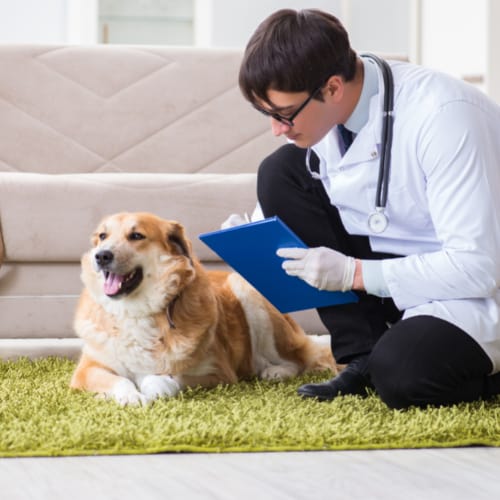
Medical Examination
During the visit, your vet will perform a thorough physical examination, checking for signs of parasitic infections, nutritional deficiencies, or other health problems that may be causing an increased appetite or desire to eat feces.
They may also recommend blood tests or other diagnostic procedures to get a complete picture of your dog's health.
Discussing Dietary Concerns
Take this opportunity to discuss your dog's current diet with the veterinarian. They can assess whether your pup is receiving a balanced, nutrient-rich diet that meets their specific needs.
If necessary, your vet may suggest dietary changes or supplements to address any nutritional gaps that could be contributing to coprophagia.
Assessing Environmental Factors
Your dog's environment can play a significant role in the development and persistence of coprophagia. Take a critical look at your home and yard to identify potential areas of concern.
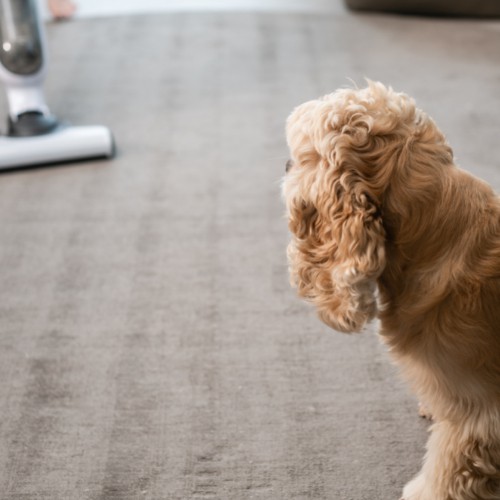
Cleanliness of Living Space
A clean living space is essential for discouraging coprophagia. Make sure to promptly clean up any accidents or messes, both indoors and outdoors.
Consider using enzymatic cleaners specifically designed to break down pet waste and remove odors that may attract your dog back to the area.
Access to Poop
Limit your dog's access to feces whenever possible. This may involve keeping your pup on a leash during walks, supervising outdoor playtime and using barriers or deterrents to prevent them from reaching waste in your yard.
If you have a cat, keep the litter box out of your dog's reach or consider using a covered box with a small opening that only your feline friend can access.
Addressing Nutritional Deficiencies
You've identified that your dog's coprophagia may be linked to a lack of essential nutrients in their diet. Now it's time to take action and give your canine friend the nutritional support they need to kick this unpleasant habit.
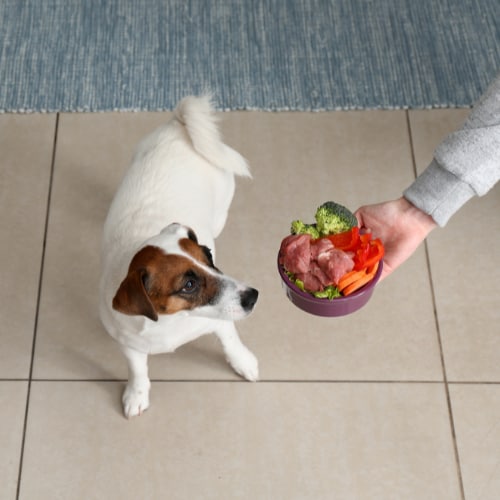
Evaluating Your Dog's Current Diet
Start by taking a close look at what your dog is currently eating. Are you feeding them a high-quality, commercially prepared dog food that meets their specific life stage and health requirements? If not, it may be time to make a change.
Consult with your veterinarian to determine the best food options for your pup, taking into account factors such as age, breed, size, and activity level.
Protein-packed jerky treats can be a great way to supplement your dog's diet and provide them with an extra boost of nutrients. These treats are made from dehydrated meat, which is a concentrated source of protein and essential vitamins.
However, it's important to remember that treats should only be given in moderation and should not replace a balanced diet.
Switching to a High-Quality, Balanced Diet
If your dog's current food isn't cutting it, consider transitioning them to a premium, nutrient-dense diet. Look for brands that use high-quality protein sources, such as real meat or fish, and include a balanced mix of essential vitamins and minerals. Avoid foods with fillers, by-products, or artificial additives, as these can contribute to nutritional deficiencies and other health issues.
When making the switch, do so gradually over the course of 7-10 days to prevent digestive upset. Start by mixing a small amount of the new food with your dog's current diet, gradually increasing the proportion of new food each day until you've fully transitioned.
We suggest going through our detailed reviews of freeze dried dog foods if you want highly nutritional options.
Adding Necessary Supplements
In some cases, even a high-quality diet may not provide all the nutrients your dog needs to thrive. This is where supplements come in. Your veterinarian can recommend specific supplements based on your dog's individual needs, such as:
- Digestive enzymes to improve nutrient absorption
- Probiotics to support gut health and reduce the urge to eat feces
- Omega-3 fatty acids for skin, coat and brain health
- Vitamin B complex to address deficiencies and improve overall health
When adding supplements to your dog's diet, always follow the recommended dosage instructions and store them properly to maintain their potency.
Ensuring Proper Hydration
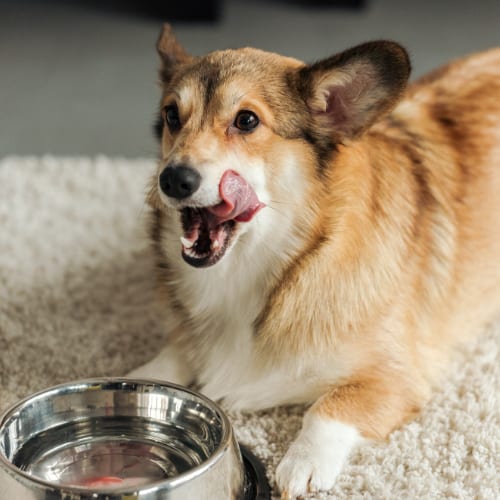
Adequate hydration is essential for your dog's overall health and can help discourage coprophagia. Make sure your pup always has access to fresh, clean water, and consider investing in a pet water fountain to encourage drinking.
If your dog is reluctant to drink, try adding low-sodium chicken or beef broth to their water to make it more appealing.
Treating Underlying Medical Conditions
Sometimes, despite your best efforts to provide a balanced diet and a clean environment, your dog may still engage in coprophagia due to an underlying medical condition. These health issues can cause an increased appetite or a compulsive desire to eat feces, making it challenging to break the habit without proper medical intervention.
Common Medical Causes of Coprophagia
Several medical conditions can contribute to coprophagia in dogs. Some of the most common include the following:
Parasites
Intestinal parasites, such as roundworms, hookworms and tapeworms, can cause malnutrition and an increased appetite, leading dogs to seek out alternative food sources, including feces.
Regular deworming and fecal examinations can help prevent and detect parasitic infections.
Malabsorption Disorders
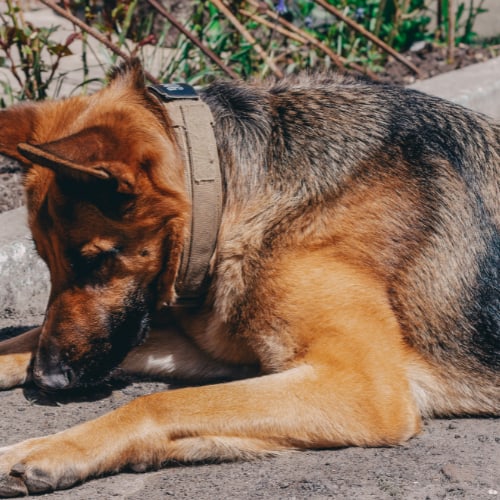
Malabsorption disorders, such as exocrine pancreatic insufficiency (EPI) and inflammatory bowel disease (IBD), can interfere with your dog's ability to properly digest and absorb nutrients from their food.
This can lead to chronic hunger and a desire to eat feces as a way to compensate for the lack of nutrients.
Diabetes
Dogs with diabetes may experience an increase in appetite due to the body's inability to properly utilize glucose for energy. This can lead to coprophagia as the dog searches for additional sources of nutrition.
Cushing's Disease
Cushing's disease, or hyperadrenocorticism, is a condition in which the body produces excessive amounts of cortisol. This can cause an increased appetite and a tendency to eat unusual items, including feces.
Diagnostic Tests and Procedures
If you suspect that your dog's coprophagia may be linked to an underlying medical condition, it's crucial to consult with your veterinarian. They can perform various diagnostic tests and procedures to identify the root cause of the problem, such as:
- Blood tests to check for nutrient deficiencies, diabetes, or other hormonal imbalances
- Fecal examinations to detect intestinal parasites or signs of malabsorption
- Imaging tests, such as X-rays or ultrasound, to visualize the digestive tract and check for abnormalities
- Endoscopy or biopsy to assess the health of the intestinal lining and diagnose conditions like IBD
Appropriate Medical Treatments
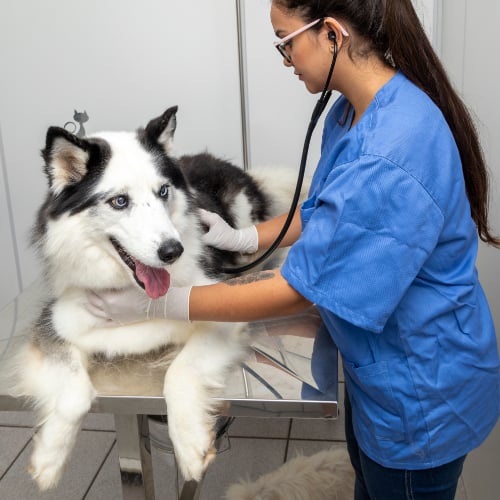
Once your veterinarian has identified the underlying medical condition contributing to your dog's coprophagia, they can recommend an appropriate treatment plan. This may include:
- Deworming medications to eliminate intestinal parasites
- Digestive enzyme supplements or special diets to manage malabsorption disorders
- Insulin therapy and dietary changes to control diabetes
- Medications to regulate cortisol levels in dogs with Cushing's disease
- Antibiotics or anti-inflammatory drugs to treat IBD or other gastrointestinal issues
Managing Behavioral Issues
When you've ruled out nutritional deficiencies and medical conditions as the cause of your dog's coprophagia, it's time to focus on addressing the behavioral factors that may be contributing to this unpleasant habit. By providing your furry friend with the right combination of mental stimulation, physical exercise and positive reinforcement training, you can help them stop the poop-eating habit for good.
Providing Mental Stimulation and Exercise
A bored or understimulated dog is more likely to engage in unwanted behaviors. To keep your pup's mind and body active, make sure they get plenty of daily exercise and mental stimulation.
Try to have long walks or runs, play sessions with interactive toys, use puzzle feeders and treat-dispensing toys, and training sessions that challenge their mind and reinforce obedience.
Aim for at least 30 minutes of physical activity per day, depending on your dog's age, breed and energy level.
Positive Reinforcement Training Techniques
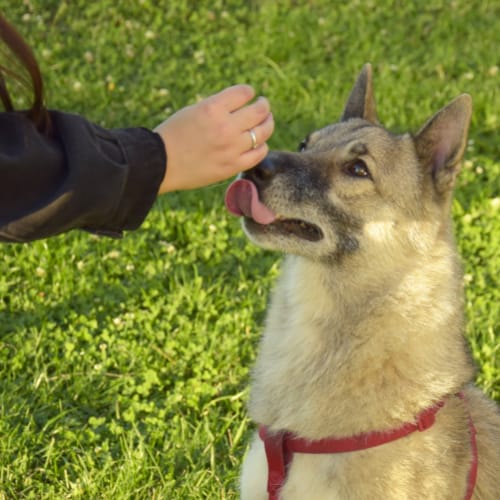
Positive reinforcement training is a powerful tool to shape your dog's behavior and teach them new, desirable habits. When it comes to discouraging coprophagia, try these techniques:
- Rewarding your dog with high-value treats, praise, or toys when they ignore or move away from feces
- Teaching a reliable "Leave It" or "Drop It" command to prevent them from consuming poop
- Using a happy, upbeat tone when redirecting your dog's attention away from feces
Remember, the key to successful positive reinforcement training is consistency, patience and plenty of rewards.
Redirecting Your Dog's Attention
When you catch your dog in the act of eating poop, it's important to redirect their attention to a more appropriate activity.
This can be done by calling their name in a cheerful voice, offering a favorite toy or treat and/or initiating a game of fetch or tug-of-war.
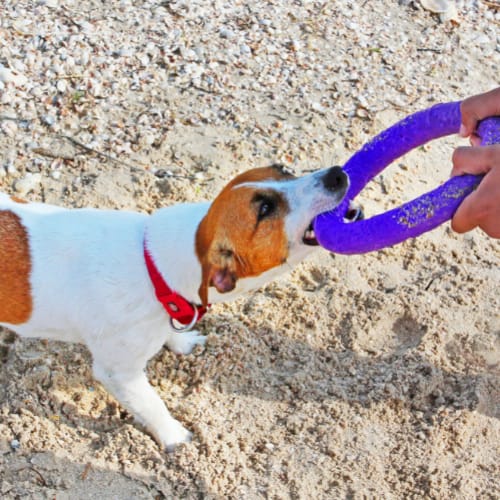
By consistently redirecting your dog's focus away from feces and towards more desirable activities, you can help them form new, healthier habits.
Consistency and Patience in Behavior Modification
Changing your dog's behavior takes time, consistency and patience. It's crucial to stay committed to your training efforts and to maintain a positive, encouraging attitude throughout the process. Some tips for success include:
- Keeping training sessions short and fun to prevent frustration or boredom
- Practicing commands and reinforcing good behavior on a daily basis
- Avoiding punishment or scolding, which can damage your bond and make training less effective
- Celebrating your dog's progress and successes, no matter how small
As you work to address your dog's coprophagia through behavior modification, don't hesitate to enlist the help of a professional dog trainer or behaviorist if needed.
Implementing Environmental Changes
In addition to addressing nutritional, medical and behavioral factors, making changes to your dog's environment can play a crucial role in curbing their coprophagia habit.
Keeping Your Yard Clean
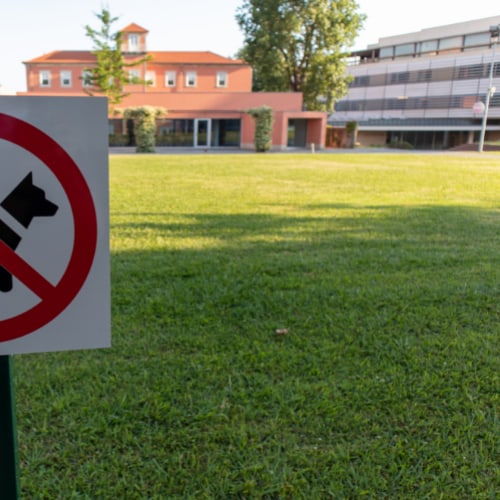
A tidy yard is essential for preventing coprophagia. Make it a habit to perform daily poop patrols, scooping up any waste as soon as possible. This reduces the chances of your dog finding and consuming feces.
If you have a large yard or limited time, consider investing in a pooper scooper or hiring a pet waste removal service to help keep your outdoor space clean and hygienic.
Supervising Outdoor Activities
Whenever your dog is outside, it's important to keep a watchful eye on their activities. This allows you to quickly intervene if they attempt to eat poop.
If you catch your pup in the act, use a firm "No" or "Leave it" command, followed by redirecting their attention to a toy or treat. Consistent supervision and intervention can help break the habit over time.
Using Deterrents and Barriers
In some cases, you may need to employ additional measures to discourage your dog from accessing and consuming feces. Here are some effective deterrents and barriers:
- Motion-activated sprinklers or alarms that startle your dog when they approach poop
- Bitter-tasting sprays or powders that make feces less appealing to consume
- Physical barriers, such as fences or gates, that restrict access to areas where waste accumulates
When using deterrents, always prioritize your dog's safety and well-being. Avoid using harsh chemicals or devices that could cause harm or distress.
Properly Disposing of Dog Waste
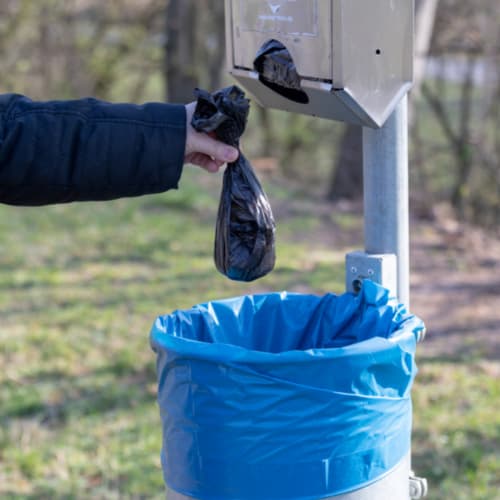
Proper waste disposal is crucial for maintaining a clean, coprophagia-free environment. Always bag and dispose of your dog's poop in a designated trash receptacle, rather than leaving it in your yard or on walks.
If you have an indoor litter box for a cat, keep it out of your dog's reach or use a covered box with a small opening that only your cat can access.
Frequently Asked Questions
When dealing with coprophagia in dogs, many pet owners find themselves asking similar questions. In this section, we'll address some of the most common concerns and provide concise, informative answers to help you better understand and manage this unpleasant behavior.
Why do dogs eat their own poop?
Dogs may eat their own poop for various reasons, including nutritional deficiencies, underlying medical conditions, behavioral issues, or environmental factors. Identifying the root cause is essential for developing an effective plan to stop the behavior.
Can eating poop make my dog sick?
Yes, consuming feces can lead to health issues in dogs, such as gastroenteritis, intestinal parasites, and the spread of bacterial infections like salmonella. If your dog regularly eats poop, consult your veterinarian to rule out any medical concerns and discuss preventive measures.
How can I tell if my dog's poop-eating habit is due to a medical issue?
If your dog suddenly starts eating poop or exhibits other symptoms like weight loss, diarrhea, or lethargy, it may indicate an underlying medical problem. Your veterinarian can perform diagnostic tests to identify any health issues contributing to coprophagia.
Are there any products that can help stop my dog from eating poop?
Several products on the market claim to deter dogs from eating poop, such as chewable tablets, powders and sprays that make feces taste unappealing. However, the effectiveness of these products varies, and they should be used in conjunction with other strategies like training, environmental management and addressing any underlying health issues.
How long does it take to break the habit of poop-eating in dogs?
The time it takes to stop coprophagia varies depending on the underlying cause and the consistency of the intervention strategies. Some dogs may respond quickly to dietary changes or training, while others may require more time and patience. Stick with your plan, and don't hesitate to seek professional guidance if needed.
Is it normal for puppies to eat their own poop?
Puppies may engage in coprophagia as part of their natural exploratory behavior or due to the immaturity of their digestive system. Most puppies outgrow this habit as they mature, but consistent training and supervision can help discourage the behavior early on.
Can a change in diet alone stop my dog from eating poop?
While dietary adjustments can help address nutritional deficiencies that contribute to coprophagia, a change in diet alone may not be sufficient to stop the behavior entirely. A multi-faceted approach that includes training, environmental management and addressing underlying medical issues is often necessary for long-term success.
Final Thoughts
Coprophagia, or the act of dogs eating their own feces or that of other animals, is a complex and often frustrating issue for pet owners. Successfully addressing this behavior requires a multi-faceted approach that may involve dietary adjustments, medical interventions, behavioral training, and environmental management.
Changing your dog's poop eating habit takes time, patience and consistency, and it's essential to maintain open communication with your veterinarian throughout the process. Remember that every dog is unique, and staying open-minded, flexible and committed to finding the right combination of strategies is key to success.
If you still have questions, please contact us. We will be happy to help you out.
